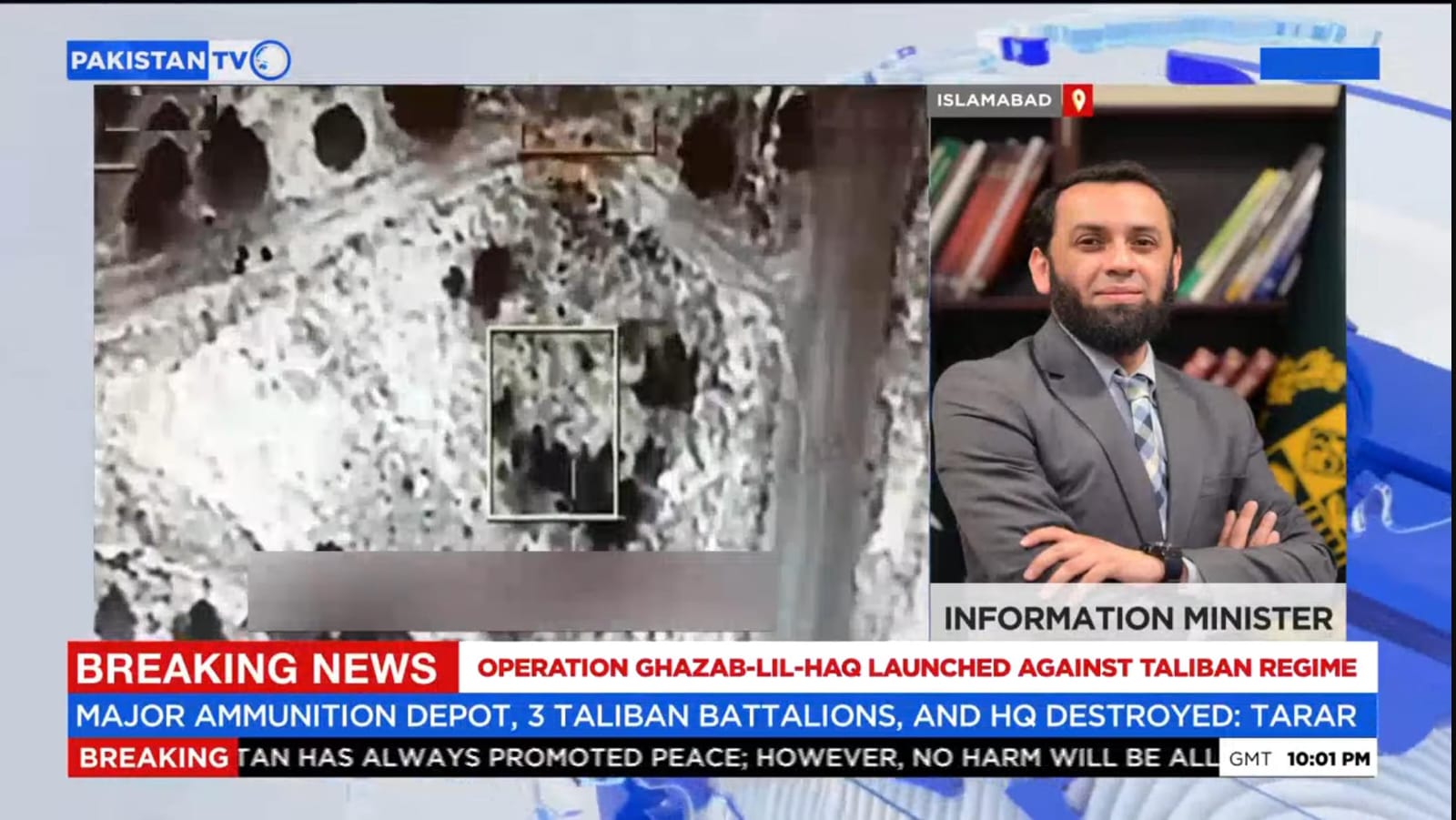World ‘rediscovering Pakistan’s relevance as stabilizing power,’ says former envoy
ISLAMABAD: Former foreign secretary and Pakistan’s ex-ambassador to the United States (US), Aizaz Ahmad Chaudhry, has said that Islamabad’s role as a stabilizing force in global affairs is being “rediscovered” following its strong defense against Indian aggression earlier this year.
In an interview with Pakistan TV Digital, Chaudhry said Pakistan’s diplomatic stature has grown significantly since May 2025, when India launched a large-scale offensive along the border.
“When Pakistan responded and put up a strong and robust defense, India found no other option but to request the United States for a ceasefire,” he said. “Ever since then, the world has come to discover Pakistan in a totally new light.”
“A country with the capacity to defend itself in the face of an enemy much larger in size and resources.”
Chaudhry said this shift has prompted a wave of renewed engagement with Islamabad. “Not only the United States but China, Russia, Türkiye, Malaysia, the Arab world, and Gulf countries are now reaching out to Pakistan,” he noted. “Pakistan has found a place on the high table on almost every issue.”
He said that the transformation also reflects growing international disappointment with India’s regional performance.
“There is a situation where India cannot even manage Pakistan, let alone push back China,” Chaudhry observed. “The West has realized that its investment in India’s rise is probably not worth it.”
According to Chaudhry, Pakistan’s strengthened position, coupled with its partnership with China, has created new strategic realities that “are difficult to reverse.” He added that the world now sees immense economic potential in Pakistan’s natural resources, rare earth minerals, and energy sector.
Discussing Islamabad’s expanding global engagements, Chaudhry cited the recent defense cooperation with Saudi Arabia as an example of Pakistan’s credibility. “It was Saudi Arabia which reached out to Pakistan for a Strategic Mutual Defense Agreement,” he said, calling it “evidence of Pakistan’s growing trustworthiness in an uncertain world.”
However, the former envoy emphasized that Pakistan must focus on domestic reforms to sustain its diplomatic momentum. “We need to revamp our own economic house and ensure economic security if we are to maintain this rising profile,” he said.
Turning to regional affairs, Chaudhry described relations with Afghanistan as “not very cordial,” blaming the Taliban regime’s support for terrorist entities targeting Pakistan.
“Pakistan has taken a firm position this time,” he said. “If they come over to Pakistan, Pakistan has the right to strike them — which is what happened.”
He supported Islamabad’s continued dialogue with Kabul but urged caution, arguing that the Taliban “have not kept their word” on commitments made to the international community.
“Every year has been bloodier than the previous one, with around ten thousand terrorist attacks in four years,” he said.
Chaudhry recalled that the Taliban had violated their 2020 agreement with the United States, which included pledges to educate girls, allow women to work, and prevent terrorist activity on Afghan soil. “They have done none of that,” he said, adding that India’s assertion that the Tehreek-e-Taliban Pakistan (TTP) problem is an internal issue “is not acceptable.”
He said Pakistan’s recent kinetic action against cross-border militants compelled the Taliban to engage diplomatically. “Diplomacy and force are two sides of the same coin,” Chaudhry said. “Unless there is adequate use of force, forces such as the Taliban regime do not come down to the diplomatic path.”
On Pakistan’s role in the Muslim world, Chaudhry said the country has “always stood shoulder to shoulder with its Muslim brothers,” reaffirming its long-standing support for the Palestinian cause.
“Pakistan extended its support to US efforts for peace in Gaza but made it clear that lasting peace requires a two-state solution based on pre-1967 borders, with Al-Quds Sharif as the capital of Palestine,” he said.
He concluded by emphasizing that Pakistan’s ties with the Muslim world remain a cornerstone of its foreign policy. “Our continued relevance and credibility on global issues stem from our principled positions,” Chaudhry said. “The world has rediscovered Pakistan’s role as a force for stability.”
Latest News
Civilian death toll in Sudan war more than doubled in 2025, UN says
44 MINUTES AGO
.jpg)
Paramount poised to acquire Warner Bros. after Netflix walks away
AN HOUR AGO
.jpg)
Pakistan retaliates befittingly after unprovoked Afghan aggression: information minister
2 HOURS AGO

Iran says 'good progress' in US talks, next round within a week
5 HOURS AGO
.jpg)
Pakistan kills 133 Taliban fighters in retaliatory Kabul, Kandahar strikes
8 HOURS AGO

